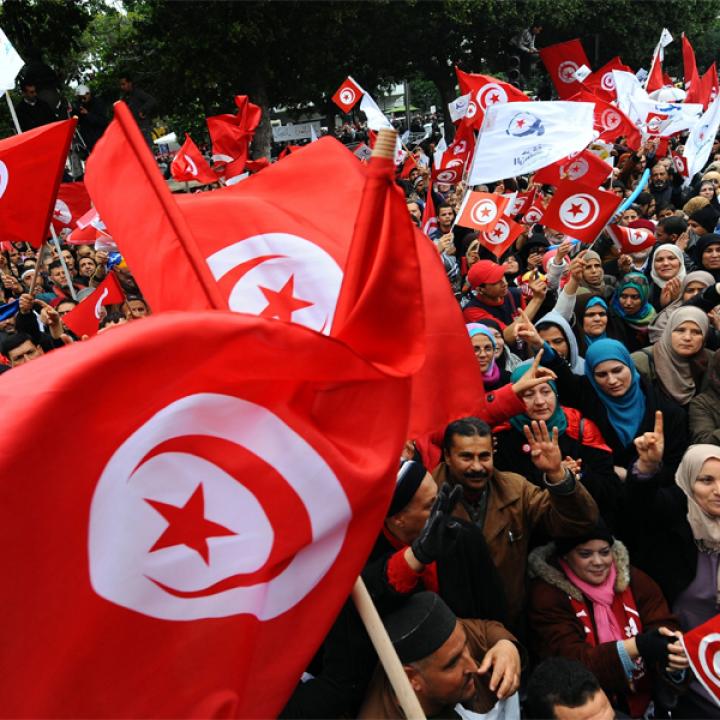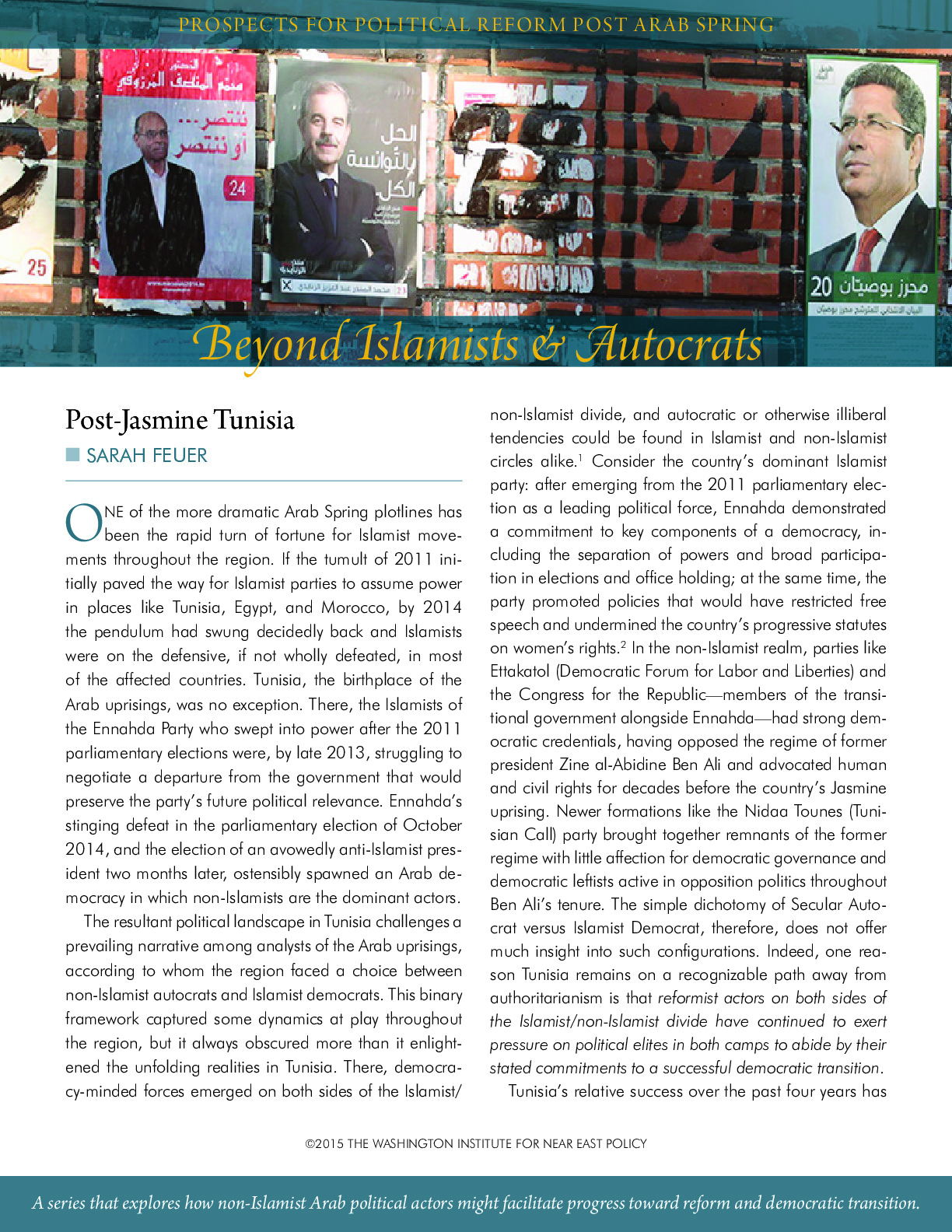

One of the more dramatic Arab Spring plotlines has been the rapid turn of fortune for Islamist movements throughout the region. If the tumult of 2011 initially paved the way for Islamist parties to assume power in places like Tunisia, Egypt, and Morocco, by 2014 the pendulum had swung decidedly back and Islamists were on the defensive, if not wholly defeated, in most of the affected countries. Tunisia, the birthplace of the Arab uprisings, was no exception. There, the Islamists of the Ennahda Party who swept into power after the 2011 parliamentary elections were, by late 2013, struggling to negotiate a departure from the government that would preserve the party’s future political relevance. Ennahda’s stinging defeat in the parliamentary election of October 2014, and the election of an avowedly anti-Islamist president two months later, ostensibly spawned an Arab democracy in which non-Islamists are the dominant actors.
This paper, the first in an essay series -- Beyond Islamist and Autocrats -- that explores non-Islamists throughout the Middle East and North Africa, focuses on the leading non-Islamists in Tunisia’s political system and civil society, highlighting their strengths and weaknesses, and offering recommendations for U.S. policymakers seeking to ensure the success of Tunisia’s experiment in democracy.
DOWNLOAD OTHER ESSAYS IN THIS SERIES
Beyond Islamists and Autocrats Essay Series




